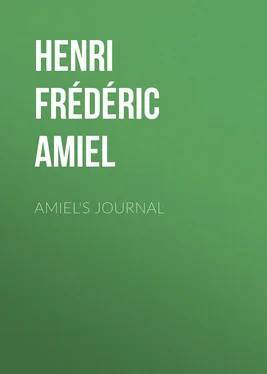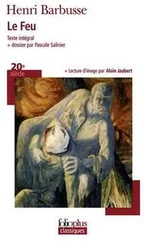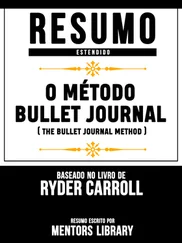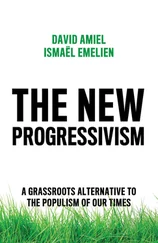Henri Frédéric Amiel - Amiel's Journal
Здесь есть возможность читать онлайн «Henri Frédéric Amiel - Amiel's Journal» — ознакомительный отрывок электронной книги совершенно бесплатно, а после прочтения отрывка купить полную версию. В некоторых случаях можно слушать аудио, скачать через торрент в формате fb2 и присутствует краткое содержание. Издательство: Иностранный паблик, Жанр: literature_19, foreign_antique, foreign_prose, Зарубежные любовные романы, на английском языке. Описание произведения, (предисловие) а так же отзывы посетителей доступны на портале библиотеки ЛибКат.
- Название:Amiel's Journal
- Автор:
- Издательство:Иностранный паблик
- Жанр:
- Год:неизвестен
- ISBN:нет данных
- Рейтинг книги:5 / 5. Голосов: 1
-
Избранное:Добавить в избранное
- Отзывы:
-
Ваша оценка:
- 100
- 1
- 2
- 3
- 4
- 5
Amiel's Journal: краткое содержание, описание и аннотация
Предлагаем к чтению аннотацию, описание, краткое содержание или предисловие (зависит от того, что написал сам автор книги «Amiel's Journal»). Если вы не нашли необходимую информацию о книге — напишите в комментариях, мы постараемся отыскать её.
Amiel's Journal — читать онлайн ознакомительный отрывок
Ниже представлен текст книги, разбитый по страницам. Система сохранения места последней прочитанной страницы, позволяет с удобством читать онлайн бесплатно книгу «Amiel's Journal», без необходимости каждый раз заново искать на чём Вы остановились. Поставьте закладку, и сможете в любой момент перейти на страницу, на которой закончили чтение.
Интервал:
Закладка:
How enormously important are these first conversations of childhood! I felt it this morning with a sort of religious terror. Innocence and childhood are sacred. The sower who casts in the seed, the father or mother casting in the fruitful word are accomplishing a pontifical act and ought to perform it with religious awe, with prayer and gravity, for they are laboring at the kingdom of God. All seed-sowing is a mysterious thing, whether the seed fall into the earth or into souls. Man is a husbandman; his whole work rightly understood is to develop life, to sow it everywhere. Such is the mission of humanity, and of this divine mission the great instrument is speech. We forget too often that language is both a seed-sowing and a revelation. The influence of a word in season, is it not incalculable? What a mystery is speech! But we are blind to it, because we are carnal and earthy. We see the stones and the trees by the road, the furniture of our houses, all that is palpable and material. We have no eyes for the invisible phalanxes of ideas which people the air and hover incessantly around each one of us.
Every life is a profession of faith, and exercises an inevitable and silent propaganda. As far as lies in its power, it tends to transform the universe and humanity into its own image. Thus we have all a cure of souls. Every man is the center of perpetual radiation like a luminous body; he is, as it were, a beacon which entices a ship upon the rocks if it does not guide it into port. Every man is a priest, even involuntarily; his conduct is an unspoken sermon, which is forever preaching to others; but there are priests of Baal, of Moloch, and of all the false gods. Such is the high importance of example. Thence comes the terrible responsibility which weighs upon us all. An evil example is a spiritual poison: it is the proclamation of a sacrilegious faith, of an impure God. Sin would be only an evil for him who commits it, were it not a crime toward the weak brethren, whom it corrupts. Therefore, it has been said: “It were better for a man not to have been born than to offend one of these little ones.”
May 6, 1852.—It is women who, like mountain flowers, mark with most characteristic precision the gradation of social zones. The hierarchy of classes is plainly visible among them; it is blurred in the other sex. With women this hierarchy has the average regularity of nature; among men we see it broken by the incalculable varieties of human freedom. The reason is that the man on the whole, makes himself by his own activity, and that the woman, is, on the whole, made by her situation; that the one modifies and shapes circumstance by his own energy, while the gentleness of the other is dominated by and reflects circumstance; so that woman, so to speak, inclines to be species, and man to be individual.
Thus, which is curious, women are at once the sex which is most constant and most variable. Most constant from the moral point of view, most variable from the social. A confraternity in the first case, a hierarchy in the second. All degrees of culture and all conditions of society are clearly marked in their outward appearance, their manners and their tastes; but the inward fraternity is traceable in their feelings, their instincts, and their desires. The feminine sex represents at the same time natural and historical inequality; it maintains the unity of the species and marks off the categories of society, it brings together and divides, it gathers and separates, it makes castes and breaks through them, according as it interprets its twofold rôle in the one sense or the other. At bottom, woman’s mission is essentially conservative, but she is a conservative without discrimination. On the one side, she maintains God’s work in man, all that is lasting, noble, and truly human, in the race, poetry, religion, virtue, tenderness. On the other, she maintains the results of circumstance, all that is passing, local, and artificial in society; that is to say, customs, absurdities, prejudices, littlenesses. She surrounds with the same respectful and tenacious faith the serious and the frivolous, the good and the bad. Well, what then? Isolate if you can, the fire from its smoke. It is a divine law that you are tracing, and therefore good. The woman preserves; she is tradition as the man is progress. And if there is no family and no humanity without the two sexes, without these two forces there is no history.
May 14, 1852. (Lancy.)—Yesterday I was full of the philosophy of joy, of youth, of the spring, which smiles and the roses which intoxicate; I preached the doctrine of strength, and I forgot that, tried and afflicted like the two friends with whom I was walking, I should probably have reasoned and felt as they did.
Our systems, it has been said, are the expression of our character, or the theory of our situation, that is to say, we like to think of what has been given as having been acquired, we take our nature for our own work, and our lot in life for our own conquest, an illusion born of vanity and also of the craving for liberty. We are unwilling to be the product of circumstances, or the mere expansion of an inner germ. And yet we have received everything, and the part which is really ours, is small indeed, for it is mostly made up of negation, resistance, faults. We receive everything, both life and happiness; but the manner in which we receive, this is what is still ours. Let us then, receive trustfully without shame or anxiety. Let us humbly accept from God even our own nature, and treat it charitably, firmly, intelligently. Not that we are called upon to accept the evil and the disease in us, but let us accept ourselves in spite of the evil and the disease. And let us never be afraid of innocent joy; God is good, and what He does is well done; resign yourself to everything, even to happiness; ask for the spirit of sacrifice, of detachment, of renunciation, and above all, for the spirit of joy and gratitude, that genuine and religious optimism which sees in God a father, and asks no pardon for His benefits. We must dare to be happy, and dare to confess it, regarding ourselves always as the depositaries, not as the authors of our own joy.
… This evening I saw the first glow-worm of the season in the turf beside the little winding road which descends from Lancy toward the town. It was crawling furtively under the grass, like a timid thought or a dawning talent.
June 17, 1852.—Every despotism has a specially keen and hostile instinct for whatever keeps up human dignity, and independence. And it is curious to see scientific and realist teaching used everywhere as a means of stifling all freedom of investigation as addressed to moral questions under a dead weight of facts. Materialism is the auxiliary doctrine of every tyranny, whether of the one or of the masses. To crush what is spiritual, moral, human so to speak, in man, by specializing him; to form mere wheels of the great social machine, instead of perfect individuals; to make society and not conscience the center of life, to enslave the soul to things, to de-personalize man, this is the dominant drift of our epoch. Everywhere you may see a tendency to substitute the laws of dead matter (number, mass) for the laws of the moral nature (persuasion, adhesion, faith) equality, the principle of mediocrity, becoming a dogma; unity aimed at through uniformity; numbers doing duty for argument; negative liberty, which has no law in itself , and recognizes no limit except in force, everywhere taking the place of positive liberty, which means action guided by an inner law and curbed by a moral authority. Socialism versus individualism: this is how Vinet put the dilemma. I should say rather that it is only the eternal antagonism between letter and spirit, between form and matter, between the outward and the inward, appearance and reality, which is always present in every conception and in all ideas.
Читать дальшеИнтервал:
Закладка:
Похожие книги на «Amiel's Journal»
Представляем Вашему вниманию похожие книги на «Amiel's Journal» списком для выбора. Мы отобрали схожую по названию и смыслу литературу в надежде предоставить читателям больше вариантов отыскать новые, интересные, ещё непрочитанные произведения.
Обсуждение, отзывы о книге «Amiel's Journal» и просто собственные мнения читателей. Оставьте ваши комментарии, напишите, что Вы думаете о произведении, его смысле или главных героях. Укажите что конкретно понравилось, а что нет, и почему Вы так считаете.












